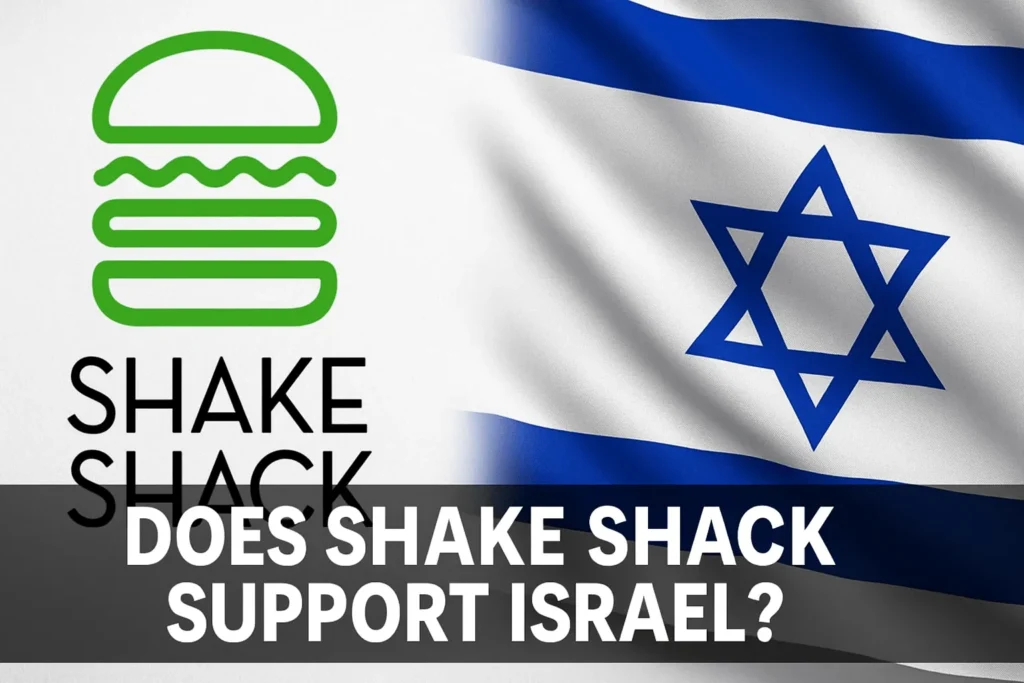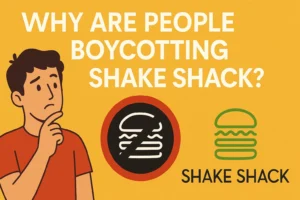In February 2024, Shake Shack, the renowned American fast-casual burger chain, inaugurated its first outlet in Tel Aviv, Israel. This move, part of a global expansion strategy announced in April 2023, has sparked significant controversy. Critics argue that opening a branch in Israel amid the ongoing Israel-Gaza conflict implies support for Israeli policies, leading to widespread calls for boycotts. Shake Shack, however, maintains that its decision was apolitical, emphasizing its commitment to serving diverse communities worldwide. This article delves into the various facets of this debate, examining public reactions, the company’s stance, potential impacts on sales, and frequently asked questions surrounding the issue.

Public Reactions and Boycott Movements
The opening of Shake Shack in Tel Aviv was met with immediate backlash from pro-Palestinian activists and supporters of the Boycott, Divestment, Sanctions (BDS) movement. Critics argue that establishing a presence in Israel during ongoing hostilities is insensitive and have called for boycotts of Shake Shack.
Key Points:
- Timing of the Opening: The Tel Aviv branch opened in February 2024, several months after the escalation of the Israel-Gaza conflict in October 2023.
- Perceived Insensitivity: Activists argue that launching a new outlet in Israel amid the humanitarian crisis in Gaza reflects a disregard for Palestinian suffering.
- Social Media Campaigns: Platforms like Instagram and X (formerly Twitter) have seen a surge in posts calling for boycotts of Shake Shack, accusing the company of complicity in the conflict.
Shake Shack’s Official Position
In response to the criticism, Shake Shack released a statement clarifying its stance:
“Shake Shack Enterprises does not support governments or groups engaged in this or any conflict. We condemn all forms of violence and suffering and are deeply concerned for everyone impacted by the conflict.”
Additional Clarifications:
- Global Expansion Strategy: The decision to open in Tel Aviv was part of a broader plan announced in April 2023, prior to the recent escalation in the region.
- Commitment to Communities: The company emphasized its focus on serving diverse communities worldwide, highlighting its presence in 18 countries since its first international location in 2011.
Impact on Sales and Business Operations
While specific sales data for Shake Shack post-boycott calls is not publicly available, similar campaigns have affected other major brands:
- Comparable Cases: Companies like McDonald’s and Starbucks have reported sales declines in certain regions due to boycott movements linked to the Israel-Gaza conflict.
- Potential Risks: Prolonged boycotts could impact Shake Shack’s operations, especially in Middle Eastern markets where public sentiment is strongly influenced by geopolitical events.
Read More : Is Shake Shack Halal in the UK?
Frequently Asked Questions
Why did Shake Shack open a branch in Israel?
The Tel Aviv outlet is part of Shake Shack’s global expansion strategy announced in April 2023, aiming to establish a presence in various international markets.
Does opening in Israel mean Shake Shack supports Israeli policies?
Shake Shack has stated that it does not support any governments or groups involved in conflicts and that its expansion is purely a business decision.
How have people reacted to Shake Shack’s opening in Israel?
The opening has led to significant backlash from pro-Palestinian activists and supporters of the BDS movement, who have called for boycotts of the brand.
Has the boycott affected Shake Shack’s sales?
While specific data is unavailable, similar boycott movements have impacted sales of other major brands in the region, suggesting potential risks for Shake Shack.
Is Shake Shack planning to open more branches in Israel?
Yes, the company has plans to open at least 15 branches across Israel over the next decade.
Final Verdict
The controversy surrounding Shake Shack’s expansion into Israel underscores the complex interplay between business decisions and geopolitical sensitivities. While the company maintains a neutral stance, emphasizing its commitment to serving diverse communities, public perception and activism continue to challenge its operations. As global awareness and advocacy grow, businesses may need to navigate such complexities with increased transparency and cultural sensitivity.






